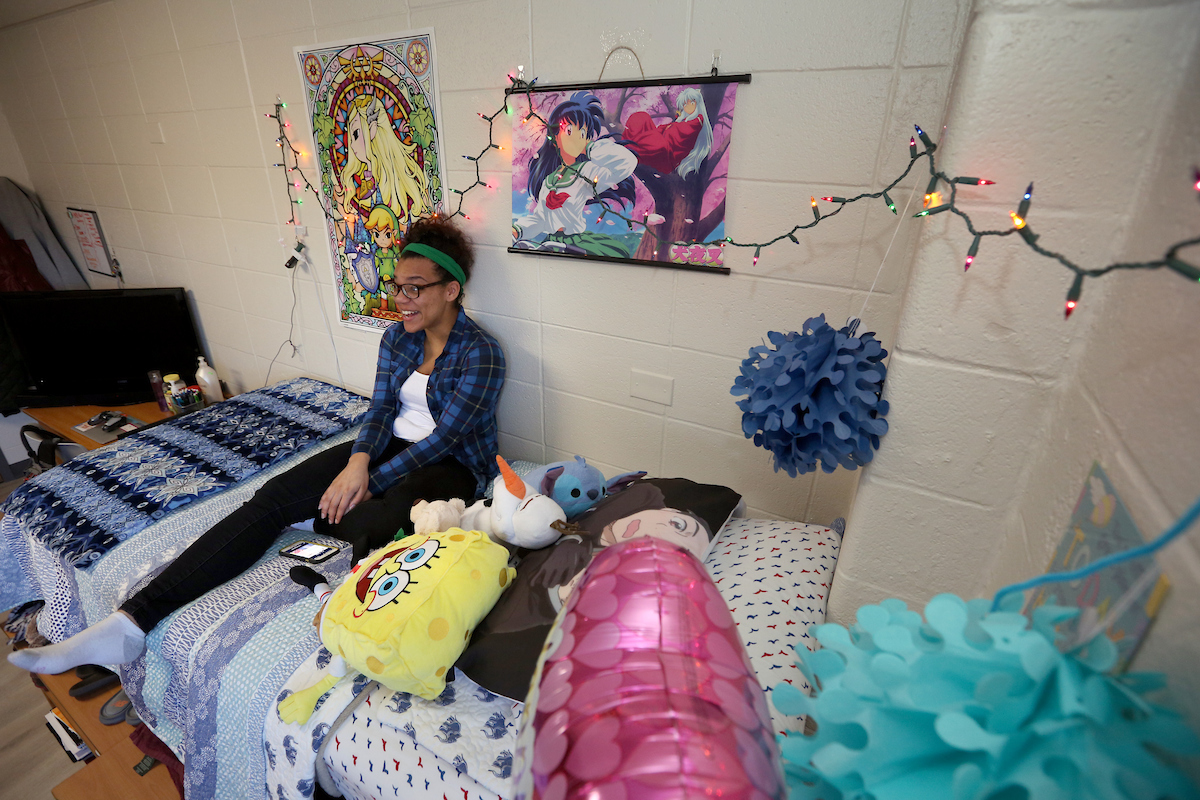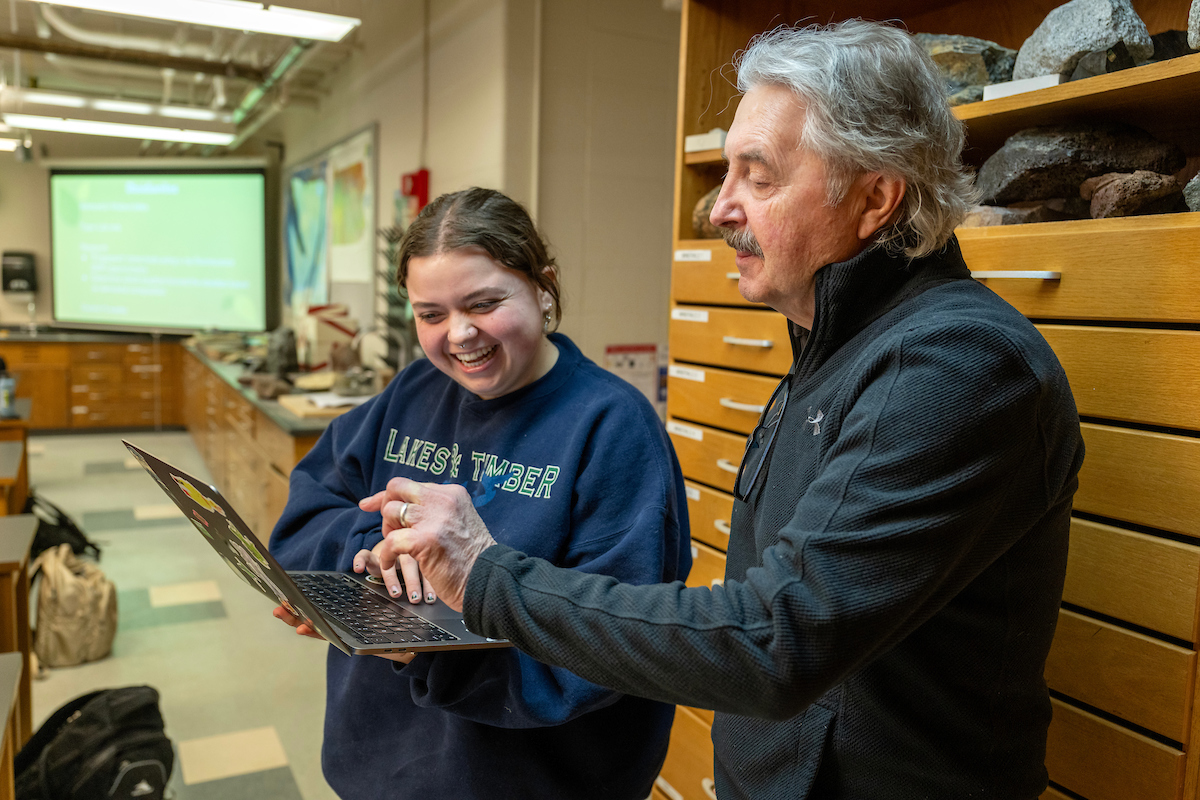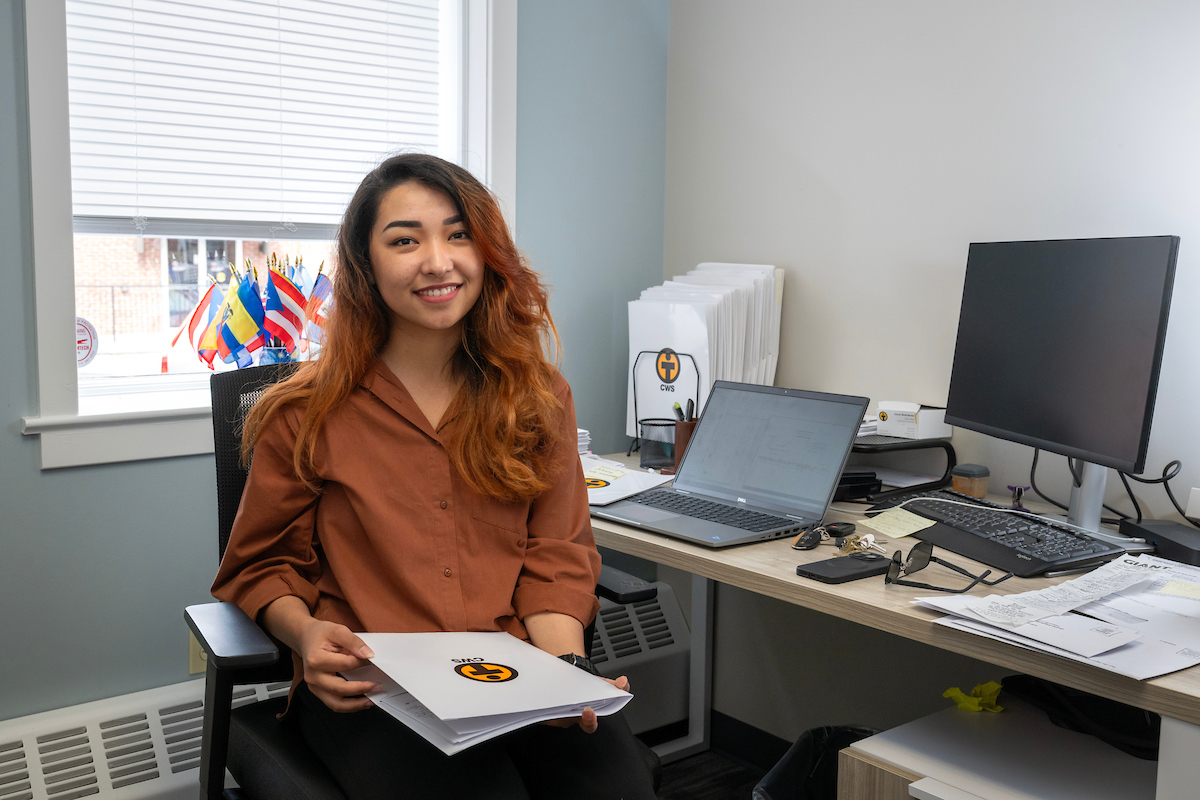Resources for Your First-Year
Living on Campus
Housing
Our four-year residency requirement means students are required to live in F&M-owned or -approved housing for all four years. Your first-year student will live in their College House. They will receive their College House and roommate assignment the summer before they arrive on campus.
Contact Housing
If you or your student have questions about F&M housing, you can explore our FAQ to learn more or reach out to our housing team at housing@fandm.edu or 717-358-4010 for additional help. Your student also has a consistent reference point through their House Director if
they have a question or concern.
Dining
Great food, honest values, and a comfortable atmosphere can be found in every F&M campus dining location — all conveniently located within walking distance of on-campus housing, labs, and classrooms!
Meal Plans
First-year students are required to purchase a meal plan unless they are commuting (though commuting students can also purchase a meal plan). Meal plan pricing is automatically folded into your student’s tuition details.
Academics
Academic Advising
Your first-year student is at a crossroads moment of their life. This might be the first time they’re living away from home, and processing this first step toward adulthood can be complex. In addition, they’ll be adjusting to F&M, learning about the College's resources and networks, and determining how to build the right education for them.
Your first-year’s faculty adviser will support them in assimilating to F&M, guided by a series of first-year milestones that will set them up for success. We value that each student has a diverse set of goals and experiences, so we expect that faculty advisers will adapt this guide to meet your first-year’s individual needs.
Here are some topics your first-year should discuss with their adviser:
- Adjusting to college life
- Building and improving academic skills and taking advantage of support resources on campus
- Challenges they are facing, things that are going well, and what they can learn from both the challenges and triumphs
- Classes that have sparked their interest and whether they might pursue another course in the same subject next year
- Leadership positions at the College they can imagine themselves in
- The kinds of programs/clubs/leadership opportunities they might want to create for themselves at the College
Center for Career and Professional Development
Beginning early in their F&M experience, our Center for Career and Professional Development will guide your first-year in designing a portfolio of experiences that will help them discover and focus their talents, interests, and post-graduate aspirations.
Our signature programs for your first-year student include:
- “Authentic Success & Possibility in Reach for Every Student (ASPIRE)” — a first-year program designed to set your student up for success early at F&M
- “Understanding and Leveraging Your Strengths and Preferences” workshop
- Career exploration, leadership, and mentorship
What to Expect During Your Student’s First Year
A student’s first year at college will include many successes, as well as some new challenges. Some of these new experiences may include:
-
- Sadness: Mild sadness as a student adjusts to a new life in a new place is normal
- Anxiety: College is not easy; there will be moments when a student feels overwhelmed and anxious
- Erratic Eating Patterns: It is not uncommon for a student to miss or skip meals as they adjust to a new schedule and lifestyle
- Decrease in Academic Performance: College academics can be rigorous; it is not abnormal for a student who previously received all As to experience a drop — often temporary — in grades at the college level
- Struggles with Identity: It is developmentally appropriate for students to shift and develop their identity as they figure out where they fit in
- Mood Swings: Students often experience a broad array of emotions during this year of transition
- Interpersonal Issues: Issues with roommates and College House neighbors will occur as students get used to living in close proximity to new people from different backgrounds
Most college students successfully overcome the challenges during their first year on campus. In fact, these challenges can be beneficial. They help develop resilience, coping methods, and problem-solving skills for the coming years. However, if a student is struggling at F&M, there is help.
When to Be Concerned
It is important to be aware of red flags that signal something more serious may be happening. These warnings signs can include:
- Changes to physical appearance, including weight loss or gain, and neglected hygiene.
- Atypical levels of tearfulness, panic reactions, irritability, or apathy
- Feelings of anxiety that disrupt daily functioning
- Challenges with falling asleep, staying asleep, and oversleeping.
- Expressions of deep sadness or hopelessness
- Self-injurious behaviors
- Suicidal remarks, thoughts, or actions
- Academic distress, as evidenced by declining academic performance, frequent tardiness, and ongoing absences.
- Persistent concerns with body image that impacts daily functioning
- Anger, aggression, or hostility toward others
- Withdrawing from friends or family members
- Concerning posts on social media that indicate distress
- Significant changes in mood
How to Get Help
DipCares
If you’re concerned about your student or someone else, you can make a report through
our referral form. The DipCares program allows anyone who is concerned about a student — including F&M
employees, family members, roommates, and more — to make reports. Once a report is
received, DipCares will reach out to the student and offer support as deemed appropriate.
NOTE: If you are worried about the immediate safety of a student/self, please call
911 or F&M’s Department of Public Safety at 717-358-3939.
Additional Helpful Contacts
- Housing
- Student Wellness Center
- Department of Public Safety
- Office of Student Affairs: 717-358-4000
Do you have any questions? We're happy to help. Feel free to reach out to us at families@fandm.edu or visit our contact page.looking for more resources?
F&Mily Guide to Supporting Your Student in College
College is exciting and challenging for students and their families. Learn more about
how you can support your student as they navigate their journey through college.
Read More »Get in Touch With F&M




